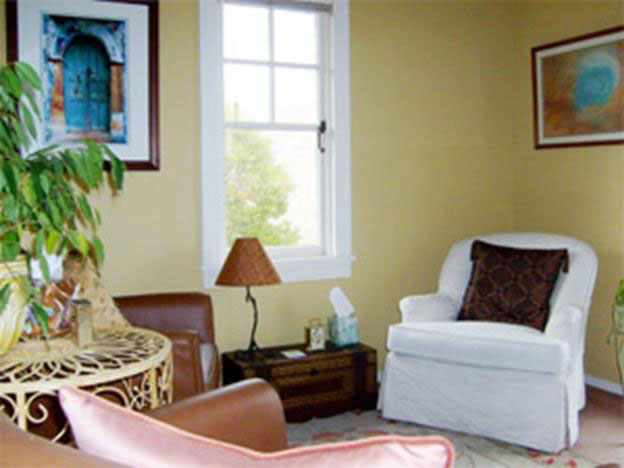Katie Dove, Ph.D., offers her thoughts on private practice in psychology.

By Jerry Gardner, M.A.
JG: I’d like to start by asking you to think back on your time at Derner; was there any training that you considered particularly helpful in your career in private practice?
KD: I knew that I wanted to deepen my clinical training, and I knew that Derner was a very clinical program. I believed that I wanted something relational and object-relations based, so that part was appealing to me. I had worked in hospitals in the past, and I think that the hospital experience was so important. Supervision was also huge, and being open to different perspectives.
One of the things I think is so hard as a student, is that we can all feel insecure all of the time, especially when you don’t know, you want to know, and you believe there’s something to know, and to the extent that you can not know, this is the time to really not know. There’s something so nice about letting yourself not know, which I think is really key to clinical work – just being open. Otherwise we’re on our path and it’s our agenda and we’re imposing it, rather than letting something unfold.
JG: Have there been any surprising aspects of private practice that you didn’t anticipate?
KD: I think people talk about this, but I was surprised by how lonely it was, and how isolated I felt, because you have such intimate connections with people all day, and it’s something so personal and intimate. And after a while, I remember feeling isolated and thinking that nobody was saying, „Hey, do you want to have lunch?’ It took me a while to get used to that, and I think that’s a real reason to stay connected, whether it’s with an institute or a hospital, there’s something so nice about that – there’s something nice about staying connected, otherwise it can be very lonely.
JG: Did you notice any changes in your practice over the years, certain things that were maybe once difficult that are now easier, or vice versa?
KD: I think in the early days I would accommodate everyone. When you’re starting out, it’s hard to believe you can fill the hours of your day, and I think that’s something that comes with time and you realize you can get people in during the day. I also think practices ebb and flow, and that can be really anxiety-provoking; I think over time that’s something that gets easier and you realize there’s a natural rhythm and it’s not all falling apart.
I think my practice has changed, and I wouldn’t necessarily categorize it as easy or difficult, but it has changed over time. For example, I now prefer to work with patients more frequently. As my experiences after Derner have continued with analytic training and supervision, I think I’ve got a better sense of myself over time. From my past work connections, I started working clinically with a lot of business people and lawyers, and I think it was much harder to maintain my own mind and be separate from that. I think there’s a fit and you want to accommodate your patient and find your way, but there’s something to be said for reaching a point where you feel like yourself, and that’s something that took a long time for me. It’s not that my “self” is fixed, it changes, but that’s something I noticed changing over time, getting to a point where I felt more like myself in the room, and getting more comfortable with that.
JG: Do you have any advice for Derner students in the middle of their clinical training?
KD: I think it’s great to try different things and try different approaches and be open to different supervisors. Find yourself before you can find the patient. I think the openness and not knowing, to me, along with your own therapy or analysis, are huge in terms of getting there. In terms of finding your own style, so much of that starts in your own analysis and your own treatment, it’s tremendously helpful.
And I think the practical stuff is important too when you’re first getting started, such as charging low fees and sharing office space. You can take the patients that other therapists aren’t taking, and that’s great for getting started. And of course the hospitals and staying connected to your referral base are important throughout your practice.
For further information, please contact:
Todd Wilson
Strategic Communications Director
p – 516.237.8634
e – twilson@adelphi.edu